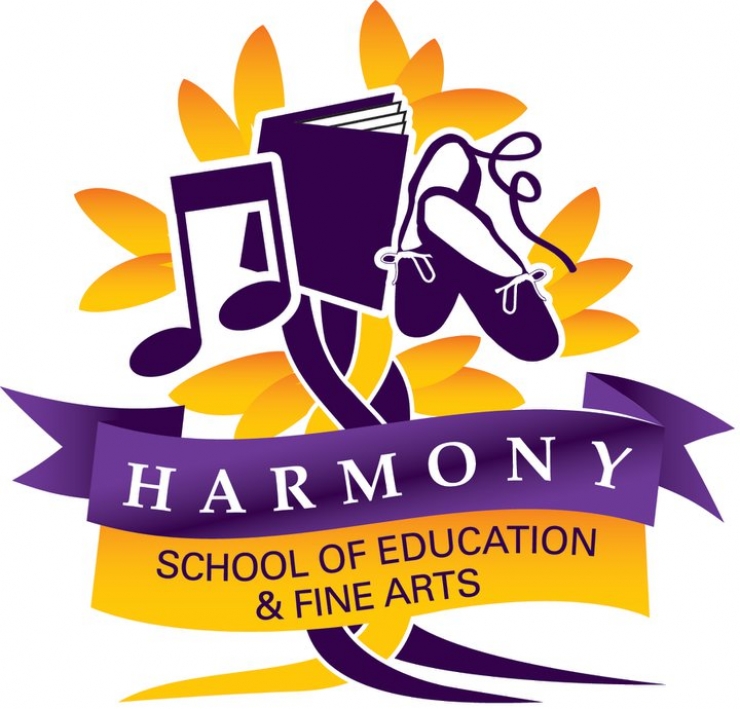The arts are used as a means to help the child’s brain development. It is used as a tool or a vehicle to help the child gain confidence. The more confident a child is the more risks they are able to take in their academic learning. The children engage actively in music, dance, drama and visual arts on a daily basis, taught by professionals who specialize in the arts. Although the children will become proficient artisans, the arts are meant to assist the children in becoming critical thinkers, challenging them to think outside the box.
Students, who participate in the arts, become creative students who are able to think critically.
Students are able to solve problems, communicate well with their peers,
conceptualize, make decisions, learn and reason.
The student is continuously engaging in learning and discovery, while learning how to be an adaptable learner.
Students become critical thinkers, who possess a wide range of higher level thinking skills.
Arts Education can help students develop and reinforce these essential higher level skills.
Students who are engaged in the Arts are able to build a strong sense of self comfort, self esteem, and confidence.
Practical Life: Integrates refinement of motor skill, coordination, pincer grasp, problem solving and logical reasoning. Children will get the opportunity to explore many hands on activities that are part of our practical life unit such as sewing, gardening, and cooking classes.
Sensorial Integration: Implementing exploration of our five senses (smell, touch, hearing, seeing, and tasting) within all activities and analysis.
Language Arts: Our teachers approach instruction in the language arts with special regard for speech development, reading skills and handwriting. We work with the individual child at their pace to ensure confidence in development of phonetic sounds, through Jolly Phonics, blossoming into the understanding of short and long vowels. Children will develop reading skills and the ability to verbalize stories and begin to write short stories, using Handwriting Without Tears as a guide, which allows children to learn handwriting skills, in the easiest and most efficient and developmentally appropriate way. As they progress into our graded program, they will work on skills in grammar, reading and writing based on their grade level as outlined in the Ontario Curriculum.
Social Studies: Our learners gain a rich perspective for their place in the local and global population. We learn about the world around us and with the implementation of tactile resources students will create examples of continents, oceans, landforms, countries and the cultural variation from within these countries. Students will also have the opportunity to learn about the importance of Community and gain a sense of belonging and learn about the important roles that people play,
Mathematics: Our program facilitates mathematical knowledge through the concept that number sense includes relationships. Learning is fun with the use of sorting, comparing, patterning, quantity predictions and number recognition. As children progress into our graded programs they begin to explore problem solving using mathematical equations involving shape, size and quantity using addition, subtraction, multiplication, division ,measurement and fractions. Students will engage in learning while using a variety of hands-on manipulatives that will assist in their learning encouraging students to learn.
Science: Exciting experiments are explored in our science program. Children get the opportunity to explore hands on science that will allow them to explore the world around them and better understand the concepts being taught .The Ontario Curriculum is used as guide in developing the science program.
Performing and Visual Arts: Through story telling in our drama program students are able to identify the components of a story. Analysis of characters help children learn and employ emotional literacy. Students study the elements of dance by exploring body, space, time, force and relationships through various dance mediums including: Royal Academy of Dance (RAD) ballet, modern, hip- hop, tap and acrobatics, as they relate to the academic subject being studied. Our music program teaches children to explore their own voice as their instrument using rhythm, tone and pitch. Children will learn to sing with confidence and work with musical instruments, as well as study music theory and history. In our visual arts classes children are provided with the tools and knowledge of various visual arts mediums. Visual arts are used every day in our program as a means to achieve in our academics. Children are encouraged to be creative and dynamic artisans.
Our program believes that art should be an integral part of every Early Childhood Program. Arts experience in our environment, not only contributes to children's artistic and creative development, but also to a wide range of skills in other areas, including building perceptual, emotional, cognitive, language, and social skills such as respect, caring, responsibility, trust and honesty.
Character Building: Our teaching approach encourages compassionate and caring individuals. Gratefulness, forgiveness, and helpfulness will follow your child into adulthood and will help them develop strong leadership skills. Students will be part of an inclusive classroom, where every student will constantly feel a sense of belonging and welcome.
Physical Education: Students will use the Ministry of Education Curriculum as a guide to explore various physical education and sporting skills.
French: Students will be provided with the tools needed to develop their French language, through individualized French classes, as well as use French in a daily classroom setting French is taught through verbal cues as well as picture cues and through the use of music.
